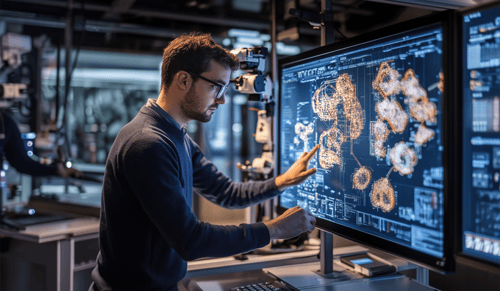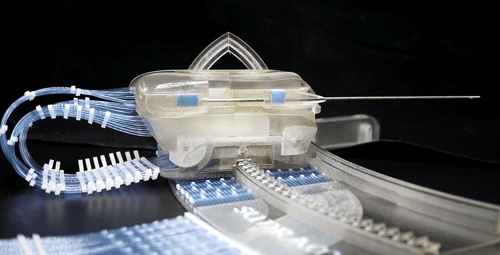Why hydrogen vehicles are the future
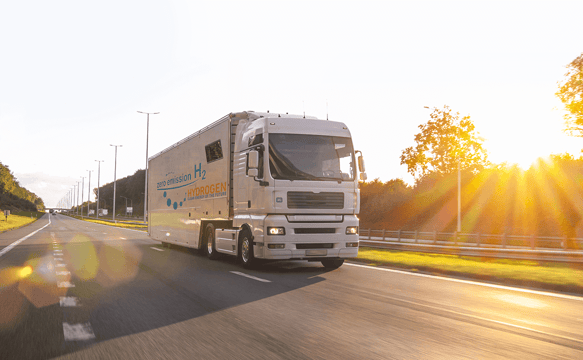
Hydrogen vehicles are the future. No energy source on Earth is as circular and eco-friendly as hydrogen. Sentech is very optimistic about H2 as a potential solution to the global energy crisis.
It will come as no surprise to learn that fossil fuel reserves are limited. At some point, there will be no oil or gas left, yet we’re all demanding more and more energy. Do wind and solar energy offer a solution? It would leave us entirely dependent on the sun shining or the wind blowing.
Hydrogen as fuel
At Sentech, we believe hydrogen is the energy carrier of the future. It’s the most sustainable source of energy available on our planet. It's extremely circular, because the waste from hydrogen combustion is just water. CO2 emissions are replaced by water vapor. Anywhere we drive and fly using hydrogen, we increase the amount of water in the atmosphere. That immediately makes everything greener.
There are high expectations of hydrogen as a fuel. Both for heating homes and for road transport. In fact, hydrogen vehicles are already being developed. Truck company DAF, for example, has designed a combustion engine that runs on hydrogen and hopes it will be ready for the road within a few years. The challenge is no longer the technology, but getting the right permits.
Electric vehicles are not green
Many companies are currently investing heavily in hydrogen-based fuel cells. The energy is used to charge batteries for cars. That's not the solution. Batteries are all very well, but there aren’t enough raw materials on Earth to provide all the cars on the road with a battery. There simply isn't enough manganese or lithium to go round.
In addition, extracting these materials is very harmful to the environment. To manufacture a billion electric cars, we’d have to dig up an area the size of half Brazil. Then it would look as if we're going all green in Europe, but only at the expense of countries on the other side of the world. And we shouldn't forget we're all on the same planet.
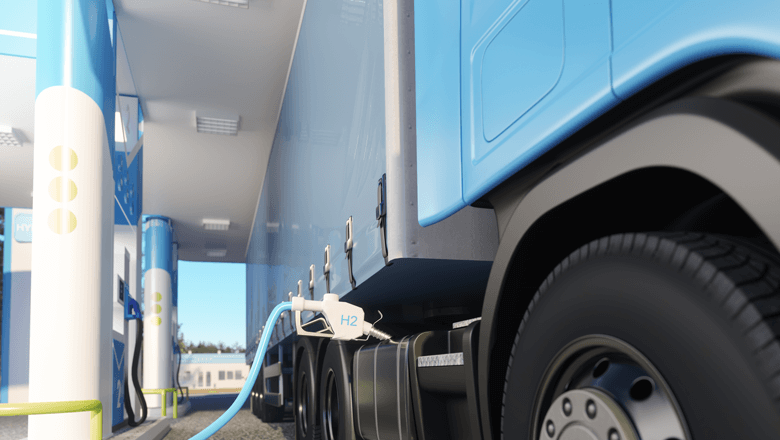
Driven by subsidies
Electric driving is only environmentally friendly if the electricity they consume is also generated in an environmentally friendly way. However, if it requires an extra coal-fired power station, that’s obviously counterproductive.
So why is the automotive industry making the transition? Partly because it’s heavily subsidized, because no manufacturer would voluntarily put a heavy, expensive battery in their cars. Bear in mind that the battery in a Tesla costs about €20,000, yet only lasts about six to seven years. Imagine being told that when you take your car to a dealer for service! On top of this, it’s no mean feat making these batteries recyclable.
More hydrogen fueling stations
So, hydrogen-powered cars. The Dutch cabinet says it wants to accelerate the development of trucks and other heavy vehicles that run on hydrogen. We think hydrogen has a future as a clean fuel, especially for trucks. Heavy vehicles running on hydrogen have a considerable range, free of exhaust fumes,' said Dutch State Secretary Vivianne Heijnen of Infrastructure and Water Management late last year, when she announced that she would set up a subsidy scheme to boost the use of hydrogen as a vehicle fuel.
There are currently 14 hydrogen fueling stations in the Netherlands. This limited number poses an obstacle to investing in hydrogen cars and trucks. It’s a chicken and egg scenario: it’s not worthwhile to open a hydrogen fueling station when there are few hydrogen vehicles on the road. Heijnen hopes the subsidy scheme, expected to start in early 2024, will break this deadlock.
The expectation is that the transition from gasoline and diesel to hydrogen will happen pretty much automatically. Shell is investing heavily in the production of green hydrogen. The company obviously wants to sell this product, and the best way is via its own network of gas stations.
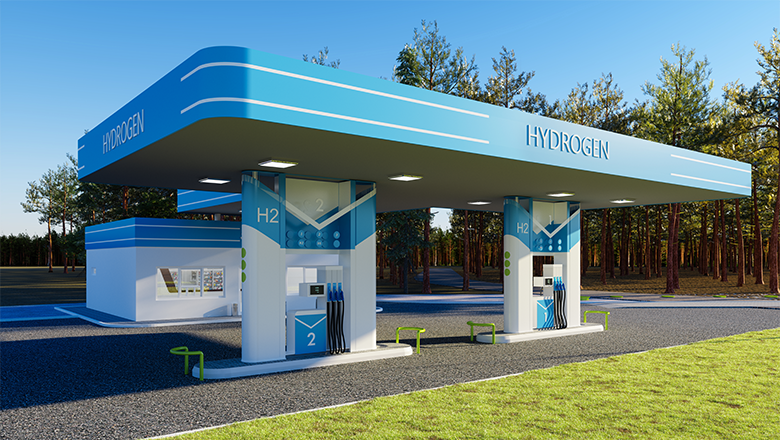
Technical expertise necessary for the roll-out of hydrogen
Our view is that the Netherlands is the perfect testing ground for the roll-out of hydrogen in mobility. In the first place, we’re home to considerable expertise in this area. TU Delft has been conducting research on hydrogen for many years. In addition, we have lots of people with the technical skills needed to support such a transition. And we have the perfect network, with a high density of roads and relatively short distances.
The first step has to be taken in Brussels. Brussels has to lead the way, but in practice they’re more of an obstacle. For example, Executive Vice-President Frans Timmermans continues to support bio-power plants, even though their limited usefulness is already clear.
The model of the European Coal and Steel Community, the forerunner of the EU, is sometimes referred to for the development of a hydrogen chain. If the Netherlands, together with Germany and France, would set a good example and say, “We’re really going to promote sustainability and are fully committed to hydrogen”, it would get the whole chain on board in one fell swoop, as the big German and French car manufacturers would also jump on the bandwagon. If the subsidies are approved and there’s a clear vision for hydrogen, the business community will invest. You must have the courage to think big.
Sensors for hydrogen
It doesn’t really matter to Sentech which energy source eventually comes out on top. All technical systems use sensors. We won’t sell more sensor solutions if hydrogen takes over, just other types. Hydrogen is a very thin gas. That means you can't just use any old material. O-rings, for example, have to be carefully chosen. A wrong type in your sensor system is more likely to cause a leak.
Work together to Increase knowledge about hydrogen solutions
Sensor solutions for the hydrogen industry are already available. We’re ready. For example, temperature sensors and pressure sensors for use in a hydrogen environment are already available.
We’d like to get in touch with companies and research groups that are working on hydrogen solutions, so we can share and increase our knowledge together.



